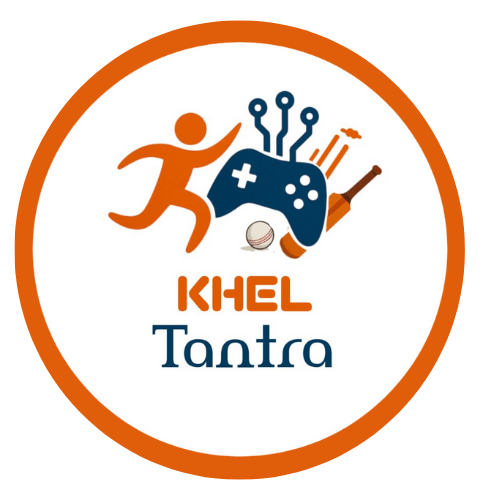Trapit Bansal Joins Meta with Record Rs 800 Crore Deal After OpenAI Exit
In a remarkable turn of events in the tech industry, Trapit Bansal, a respected AI researcher and alumnus of IIT Kanpur, has joined Meta’s newly launched Superintelligence Labs, parting ways with OpenAI. What has particularly caught everyone’s attention is the size of his compensation package—reportedly Rs 800 crore (approximately $95 million). This could be one of the largest offers ever made to an Indian expert in AI.
This career shift emphasizes the intense competition among major tech companies for leading talent in artificial intelligence. Meta’s objective is straightforward: to develop Artificial General Intelligence (AGI) that can compete with and potentially exceed human capabilities. Bansal’s decision to join is viewed as a significant strategic advantage for Meta AI Labs, giving the company a considerable edge in the global AGI race.
From IIT Kanpur to Global AI Leadership: Bansal’s Career Journey
Trapit Bansal’s story serves as an inspiration for aspiring technologists. He began his professional career in 2012 at Accenture Management Consulting in Gurugram. What truly set him apart was his academic excellence. Bansal earned dual degrees in Mathematics and Statistics from IIT Kanpur, one of India’s most prestigious institutions. He then pursued a PhD in Computer Science at the University of Massachusetts Amherst, specializing in meta-learning, deep learning, and natural language processing.
During his PhD program, he interned at Google, Microsoft, Facebook, and eventually OpenAI, honing his skills in real-world AI applications. In 2022, Bansal joined OpenAI full-time and played a significant role in the development of o1, OpenAI’s first reasoning model. His contributions directly influenced the internal logic and reasoning framework of ChatGPT, establishing him as a key architect of one of the most widely used AI tools today. The most widely used AI tools today.
Meta Superintelligence Labs: A New Frontier in AI Development
In July 2025, Meta boldly launched Meta Superintelligence Labs (MSL), a division solely dedicated to the development of Artificial General Intelligence (AGI). Co-led by Nat Friedman, former CEO of GitHub, and Alexandr Wang, ex-CEO of Scale AI, MSL’s mission is clear: to decisively outpace competitors like OpenAI and Google DeepMind.
To secure the finest talent in the industry, Meta is unapologetically offering compensation packages between $100 million and $300 million. These lucrative deals include equity shares, access to cutting-edge computing resources, and the freedom to lead crucial research initiatives. Bansal’s reported compensation of Rs 800 crore stands as a testament to the seismic shifts in AI hiring trends.
His decision to join Meta signals trust in the company’s long-term AGI strategy, which involves building models capable of reasoning, planning, and decision-making, just like humans.
Why Trapit Bansal’s Role at Meta Is a Game-Changer
Meta has yet to release a fully public AI reasoning model comparable to OpenAI’s o3 or DeepSeek’s R1. That’s exactly where Trapit Bansal fits in. At OpenAI, he worked on reinforcement learning for reasoning, a core area in AGI development. His hands-on experience will now be directed at building Meta’s next-generation models.
Beyond his technical ability, Bansal brings deep insight into how OpenAI approaches model design and scalability. His presence could accelerate Meta’s timeline for launching a competitive LLM (Large Language Model) with powerful reasoning and planning features.
He’s also expected to mentor other engineers and lead advanced AI projects. Meta’s recruitment of other AI minds like Lucas Beyer, Jack Rae, and Xiaohua Zhai further strengthens its technical base. Together, they form a powerhouse AI team aimed at solving the most complex problems in machine learning and cognition.
AI Talent Wars: Meta vs OpenAI in a Billion-Dollar Race
The AI research industry is currently in the midst of a talent war, with companies not only competing for innovation but also for the brightest minds. Recently, OpenAI CEO Sam Altman revealed that Meta had offered “$100 million signing bonuses” to entice his team members. Although Altman claimed that no key personnel accepted the offers, the departure of Trapit Bansal and others suggests otherwise.
Meta’s offer goes beyond just salary. It includes unparalleled access to computing resources, advanced research infrastructure, and the freedom to publish—all of which are highly valued by researchers. For many AI professionals, these benefits can often be more enticing than monetary compensation alone.
In this context, Bansal’s departure signifies a larger shift in the AI landscape. It’s now about more than just developing the largest language model; the emphasis is shifting towards reasoning, planning, adaptability, and real-world applications of AI. Meta is positioning itself to take the lead in this evolving field.
Conclusion: Bansal’s Move Could Redefine Meta’s AI Future
Trapit Bansal’s switch from OpenAI to Meta marks a critical turning point in the AGI journey. With his rare mix of academic depth, industry experience, and proven contributions to AI reasoning, he’s exactly the kind of leader Meta needs to take its AGI goals from theory to reality.
While the Rs 800 crore figure might raise eyebrows, it underlines a truth: top AI talent is now as valuable as top athletes or Hollywood stars. With Meta betting big on reasoning-first LLMs and deep cognition, Bansal’s expertise may be the spark that lights Meta’s next breakthrough.
As the global race for AGI intensifies, all eyes will be on Meta—and the team of AI researchers like Bansal driving its vision forward.
Also Read: AI Upskilling in India 2025: How India Can Prepare Its Workforce for an AI-Driven Future
Join Our Community
Stay updated with lineups, last-minute injury news, and expert picks by joining our Telegram & WhatsApp communities:
| Platform | Join Link |
|---|---|
| Telegram | KhelTantra Telegram |
| KhelTantra Whatsapp |







